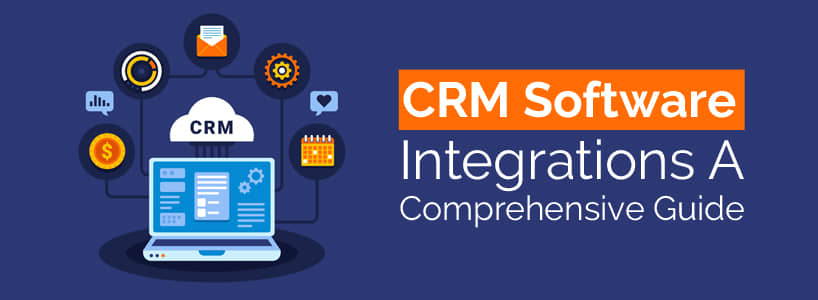CRM Software Integrations: A Comprehensive Guide to Unlocking Synergy
In today's hyper-connected business landscape, siloed data and disjointed workflows are a recipe for disaster. Customers expect seamless experiences, and businesses need to break down information barriers to thrive. This is where CRM software integrations come in, acting as bridges between your CRM and other essential business tools.
What are CRM Integrations?
Think of your CRM as the central hub for managing customer relationships. Integrations connect this hub to other applications, allowing them to exchange information and automate tasks seamlessly. From marketing automation platforms to email marketing tools, these connections create a unified ecosystem where data flows freely and processes run smoothly.
Benefits of Integrating Your CRM:
- Enhanced Data Accuracy and Consistency: Manual data entry is error-prone and time-consuming. Integrations eliminate these issues by syncing data automatically, ensuring accuracy and consistency across all systems.
- Holistic Customer Insights: See the complete picture of your customers. Integrations gather data from various touchpoints, providing a 360-degree view of their interactions, preferences, and behaviors. This empowers you to personalize experiences and build lasting relationships.
- Streamlined Workflows and Boosted Productivity: Manual data transfer and redundant tasks are relics of the past. Integrations automate workflows, eliminating repetitive tasks and freeing up your team to focus on strategic initiatives.
- Improved Collaboration and Decision-Making: Break down departmental silos and foster data-driven decision-making. Integrations facilitate collaboration across teams, allowing everyone to access and analyze the same real-time data.
Popular CRM Integrations:
- Marketing Automation: Streamline campaign management, track lead generation, and personalize customer journeys by integrating your CRM with tools like HubSpot or Pardot.
- Email Marketing: Send targeted email campaigns based on customer data in your CRM. Popular integrations include Mailchimp and Constant Contact.
- Project Management: Manage customer projects effectively by integrating your CRM with tools like Asana or Trello. Track progress, assign tasks, and collaborate with clients seamlessly.
- Accounting and Finance: Automate invoicing, track payments, and reconcile accounts by connecting your CRM with QuickBooks or Xero.
- Social Media Management: Engage with customers on their preferred platforms and track social media interactions through integrations with tools like Hootsuite or Sprout Social.
Choosing the Right Integrations:
With so many options available, choosing the right integrations can be overwhelming. Here are some tips:
- Identify your business needs and goals. What are you trying to achieve with integrations?
- Evaluate your existing software stack. Look for integrations that seamlessly connect with your current tools.
- Consider the ease of use and implementation. Choose integrations that are intuitive and require minimal setup.
- Prioritize data security and privacy. Ensure your chosen integrations comply with relevant regulations.
Conclusion:
CRM software integrations are a powerful tool for optimizing your business processes, enhancing customer relationships, and driving growth. By choosing the right integrations and implementing them effectively, you can unlock a world of synergy and unleash the true potential of your CRM.
